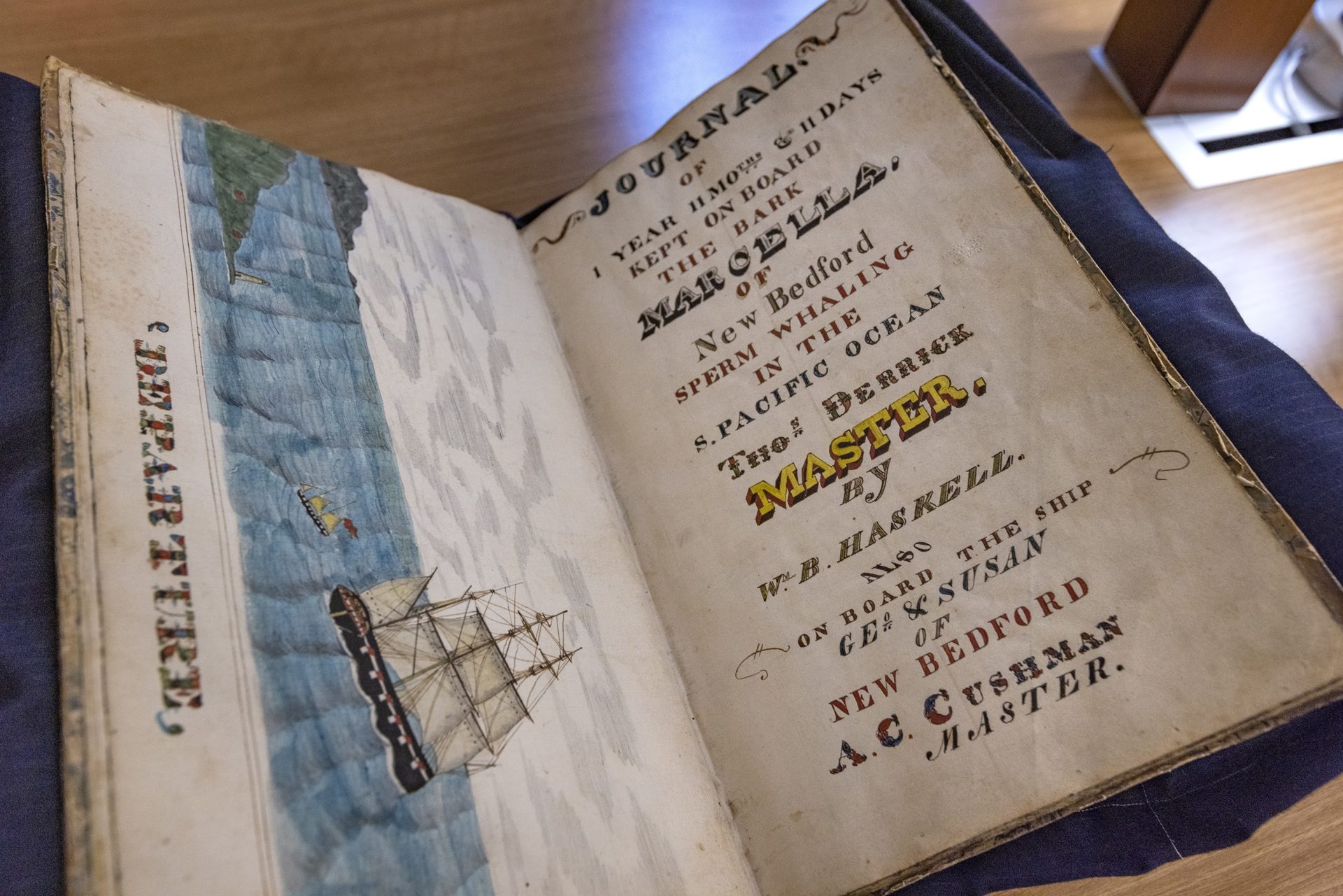19th century New England whaling logs offer clues to 21st century climate change

The log book of the whaling vessel Marcella out of New Bedford at the Providence Public Library, which owns one of the five largest collections of whaling log books in the country. (Jesse Costa/WBUR)
Tucked away in the New Bedford Whaling Museum is a room full of records.
It holds manuscripts, manifests, banking records and crew accounts from New England’s storied whaling industry.
It also contains the largest collection of whaling logbooks in the world. Logbooks were a legal record of each voyage, in which first mates documented whale sightings, other ships and the occasional fight on board.
But mostly, they recorded the weather.
“So it’s latitude and longitude,” said Timothy Walker, history professor at the University of Massachusetts Dartmouth, “wind speed, wind direction, any changes in the wind direction, precipitation, cloud cover, sea state, and if they’re in the vicinity of any land, what the landmark is.”
Walker is part of a team using those records to fill in gaps in modern climate science. The goal is to compare historic wind patterns with wind patterns today, especially in the Indian and Southern oceans. Researchers are trying to get a clearer picture of just how much climate change is affecting the region.
For the rest of the story, including the audio version, please visit WBUR.org.
